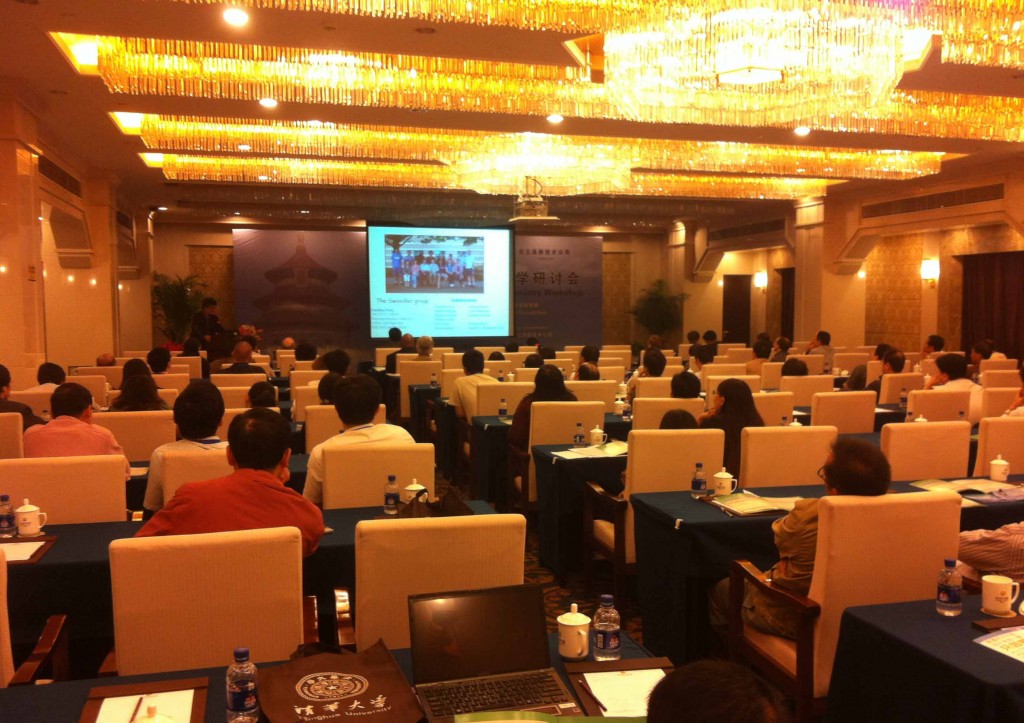The 2nd China-US Analytical Chemistry Workshop was held on September 14-15th, at Tsinghua University, Beijing, China. The workshop is a China-US bilateral meeting of analytical chemists, supported by the Chinese National Nature Science Foundation and the American Chemical Society. It focuses on the discussion of the latest trends in analytical chemistry. The first US-China Analytical Chemistry meeting was held at Purdue University in West Lafyette in the summer of 2010, organized by Prof. R.G. Cooks and Zheng Ouyang. Over 50 prominent analytical chemists from both countries attended the workshop.
The 2nd China-US Analytical Chemistry Workshop was organized by Prof. Xinrong Zhang and Prof. Jinming Lin in Analysis Center of Tsinghua University, and was hosted by Department of Analytical Chemistry, National Natural Science Foundation of China (NSFC). About 100 people from 14 units of US and 42 units of China attended the workshop. Prof. Qiankun Zhuang (NSFC), Prof. Kelsey Cook (US NSF), Prof. Yukui Zhang (Dalian Institute of Chemical Physics), Prof. Jonathon Sweedler (University of Illinois at Urbana–Champaign), Prof. Paul Bohn (Notre Dame University), Prof. R. Graham Cooks (Purdue University, USA.), Prof. Isiah Warner (Louisiana State University), Prof. Chunhai Fan (Shanghai Institute of Applied Physics, CAS), Prof. Rena Robinson (Pittsburgh University), Prof. Yanyi Huang (Peking University), Prof. Lane Baker (Indiana University), Prof. Xingyu Jiang (National Center for Nanoscience and Technology), Prof. Steve Jacobson (Indiana University), Prof. Zongxiu Nie (Institute of Chemistry, CAS) and Prof. Lihua Zhang (Dalian Institue of Chemical Physics, CAS) gave speeches at the workshop. In addition, a discussion on research trends in analytical chemistry, infrastructure and instrumentation, the status of analytical post-graduate education, and how the community can help to raise the profile of publications in analytical science was carried out.
The two-day conference has been committed to bring leading scientists and young scientists together to discuss their current research and built informal networks with their peers that may lead to lifetime collaboration and scientific achievement. Furthermore, it has sought to forge better ties between analytical chemists working in the two countries, and to promote the well-being of the discipline of Analytical Chemistry in the future.










